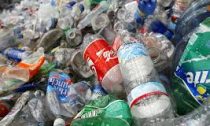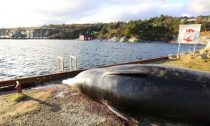
The hard coral off the shores of southern New England isn’t nearly as glamorous as its tropical counterparts — in fact, it’s barely noticed even by experienced divers — but it could play a vital role in determining the size and depth of the world’s plastic footprint.
“Coral can’t run, so it makes for a good model to see how much plastic is in a particular habitat,” said Randi Rotjan, a research assistant and professor of biology at Boston University. “My guess is that coral takes in a lot of plastic because it can’t run away from it.”
ecoRI News recently met up with Rotjan, Boston University research technician Cara Johnson and Michael Lombardi of Middletown-based Ocean Opportunity Inc...
Read More






Social Profiles